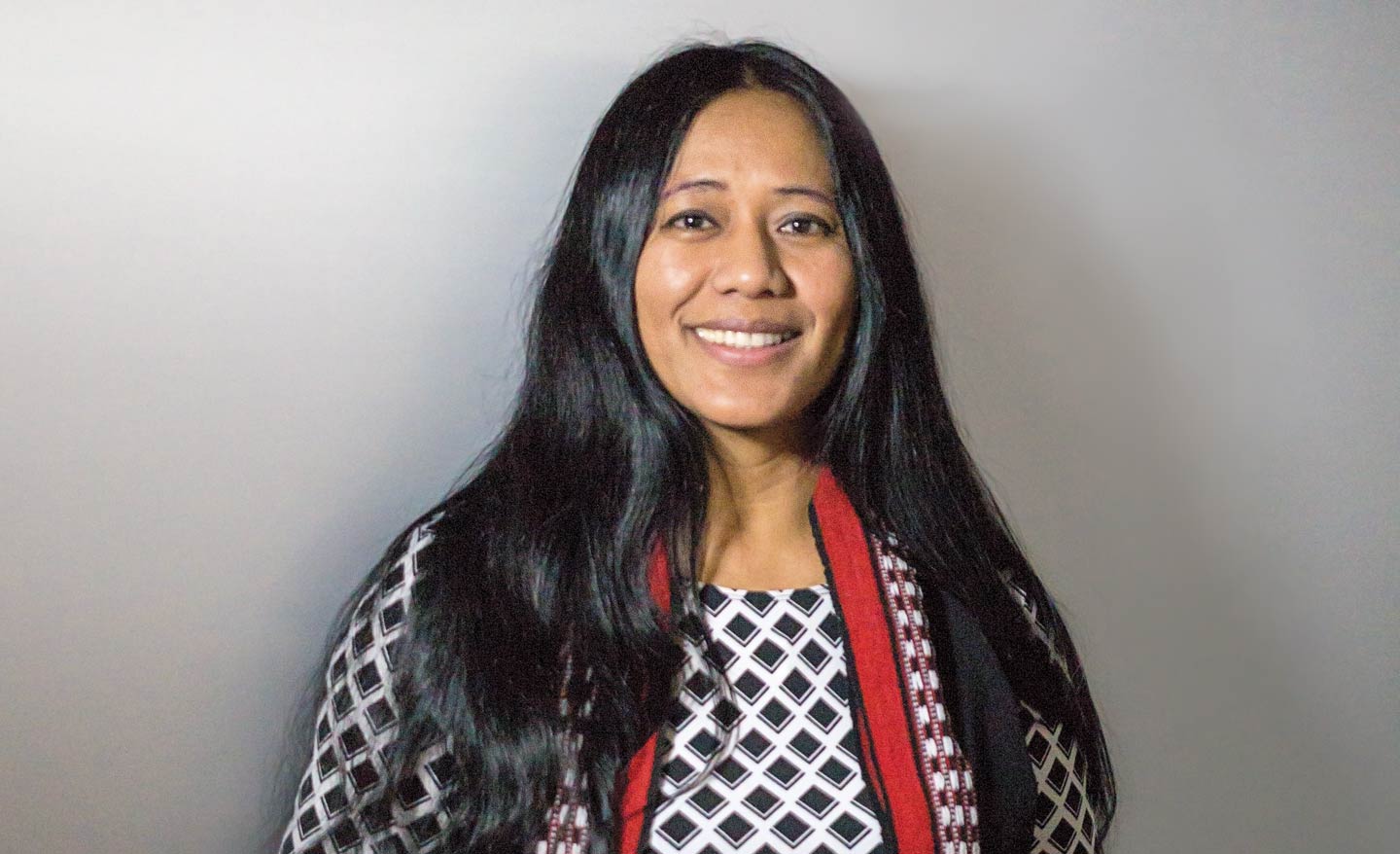In Exile
Visiting Scholar-in-Residence Bina Nepram has won the 2018 Anna Politkovskaya Award for her efforts as a human rights activist and author.
Binalakshmi Nepram was attending a friend’s wedding one afternoon last March in northeast India when she received an alarming text message from her mother. Paramilitary forces had entered her parents’ house, demanding Nepram’s whereabouts, but offering neither a warrant nor any explanation.
“My mother obviously knew something was very wrong, so she told me to stay where I was and not come home that night,” Nepram recalled. “The next morning, I took the first flight to New Delhi before I could be detained at the airport, and I met with my lawyers to file a protection plea with the Supreme Court.”
For the past decade, Nepram has been a leading humanitarian and peace advocate in her home state of Manipur and northeast India more broadly. Her advocacy and research has promoted gender equality, women’s’ empowerment and disarmament efforts in a country that faces widespread gun violence and sexual assault. That work has made her a target.
Now, thanks to the Scholar Rescue Fund, an initiative sponsored by the Institute of International Education, and generous support from The Ann Werner Johnson '68 Scholar Rescue Fund, Nepram is spending the year at Conn conducting research on race, gender and arms proliferation, writing two books and working with students exploring gender studies. Connecticut College is one of the member institutions that has entered into a partnership that hosts scholars who face threats in their home countries. To help protect the growing number of scholars and academics around the world whose lives and livelihoods are at risk, Connecticut College also joined with nearly a dozen other colleges and universities as a founding member of the New University in Exile Consortium, established by The New School for Social Research.
Nepram’s willingness to confront a system that has fueled perpetual discord for more than half a century has simultaneously generated hostility from the government as well as the various factions within a volatile independence movement. That separatist conflict and state of martial law has placed Nepram, her colleagues and her fellow citizens of northeast India in the crossfire between government forces and insurgent retaliation.
“The government has tried to paint me as a rebel,” Nepram said. “But for me, it’s about finding solutions, not carrying the agenda of any one side.”
A boiling point was reached in March of last year after a 19-year-old man was shot dead in Manipur by the son of a powerful politician during a road rage altercation. The government swept the incident under the rug, and Nepram, with the help of a lawyer, fought for the victim’s family.
When she filed a lawsuit in May 2017 against the government of Manipur for repeated intimidation of the victim’s parents, Nepram’s lawyers advised her to leave India immediately. Within 24 hours, Nepram had packed what she could into a red suitcase and boarded a flight to the U.S.
She hasn’t been home since.
“The reason I came here is because I’m not ready to die...,” Nepram explained. “It was really tough. I had to leave everything behind.”
Today, a dozen armed security agents guard her parents’ home, and Nepram has been granted lifetime protection by the Supreme Court of India, providing her a security detail whenever she is in her home country.
Nepram’s family is not unfamiliar with the consequences of the region’s bloodshed. In 1997, while returning home from Badminton practice, her teenaged niece was killed when she stepped on a bomb laid by insurgents that had been intended for politicians. This personal tragedy was a pivotal event in motivating what has become Nepram’s life work as a human rights and peace advocate.
Nepram has been recognized internationally with a variety of prestigious peace awards for her grassroots work and the organizations she has founded, including the Manipur Women Gun Survivors Network and the Control Arms Foundation of India. Despite numerous invitations to run for political office, she feels she can be more effective on the outside of the system, and doesn’t intend to slow down her activism anytime soon.
“For me, every day is precious, and I take every day as a day that will never come back,” Nepram said. “It’s such a wonderful luxury to be on this beautiful campus for a year with the faculty and students and the warmth I’ve been shown here. The peace I get from being here is immense.”
Nepram was recently awarded the prestigious 2018 Anna Politkovskaya Award. To learn more, listen to http://www.conncoll.edu/at-a-glance/meet-our-president/thinkdolead/
